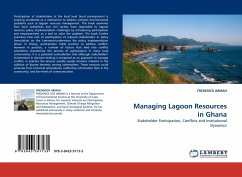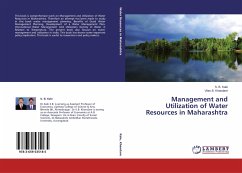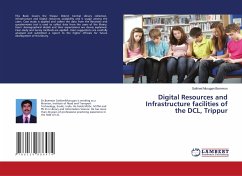Participation of stakeholders at the local level (local participation) is evolving worldwide as a mechanism to address complex environmental problems such as lagoon resource management. This book examines how local authorities and civil society have responded to lagoon resource policy implementation challenges by introducing participation and empowerment as a tool to solve the problem. The book further examines how lack of participation of relevant stakeholders in policy formulation on the 'commons'undermines the policy implementation phase. In theory, participation holds promise to address conflict, however in practice, a number of factors that feed into conflict sometimes characterize the process of participation in many local communities. It is a potential contradiction that although stakeholders' involvement in decision-making is proposed as an approach to manage conflict, in practice the process usually reveals tensions inherent in the collision of diverse interests among stakeholders. These tensions could emanate from historical antecedents, ineffective information flow in the community, and low-levels of communication.
Bitte wählen Sie Ihr Anliegen aus.
Rechnungen
Retourenschein anfordern
Bestellstatus
Storno








